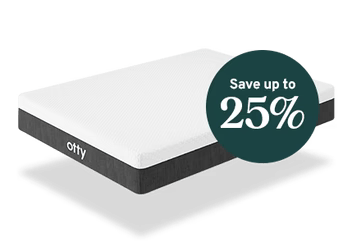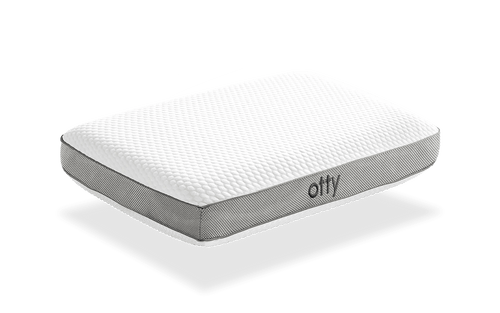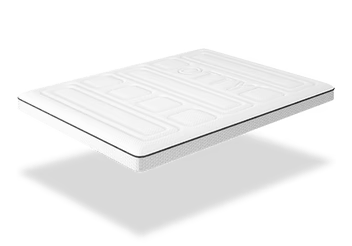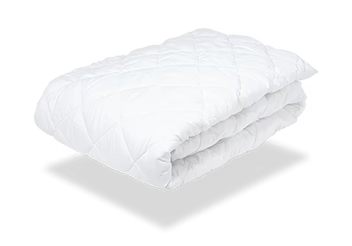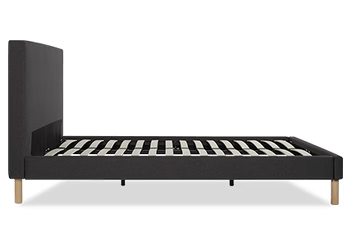In celebration of National Bed Month and World Sleep Day, we recently conducted research to discover the most common sleeping habits of the nation. Revealing our findings via interviews across UK Radio stations, we are now taking to social media and our blog in aim of helping you, our reader, to get better sleep. After all, we’re advocates of all things sleep - we wouldn’t be a good mattress retailer if we weren’t!
What the research found
The research involved 2,029 participants and looked into the most common bedtime habits, revealing that essentially, a lot of people aren’t doing themselves any favours when it comes to getting a good night’s sleep. From tricking their body into thinking it's day time by exposing themselves to the blue light on their TV or phones late at night, to drinking alcohol and taking sleeping pills, the research suggests that people’s habits could actually be harming their sleep, since these activities can actual cause you to feel more awake before bedtime.
When it comes to actually going to bed, just shy of a quarter of people admitted to not being able to get comfortable, with 8% blaming a lumpy mattress, and 23% complaining of feelings of stiffness the following morning. Plus, more than a quarter of people admitted that once they do get to sleep, they find themselves waking up because they get too hot. Here, whereas the research suggests people are using sleeping pills to combat their problems, the problem actually lies within the mattress being used. This means that people aren’t using the right solution to combat their problems.
A mattress should be changed around every 8 years and finding one that suits your body is essential. For example, if you are prone to overheating, a memory foam mattress probably isn’t the best solution as it can trap heat. That’s why we offer hybrid mattresses which combine springs and memory foam, which come with temperature regulating technology.
How the pandemic has impacted our sleep
The last year has been stressful for everyone. Between working from home and limited social contact, a lot of people have been confined to the four walls of their home. It’s meant that the places we usually relax, like our bedrooms, have now become a place related to daily stresses, worries, and isolation. Unfortunately, this has meant that for a lot of people, their sleep has been compromised due to the inability to switch off at the end of the day and relax into sleep when getting into bed.
Essentially, daily routines have changed, and people’s body clocks (the circadian rhythm), have altered, meaning we might not sleep as we used to. We don’t think it would come as a surprise to say there’s probably a large proportion of people who join work meetings with their pyjama bottoms on - Jason Manford definitely spoke for a lot of people in the UK when he rocked up on the Graham Norton show with his PJ pants on! But that right there, shows that the lines between work and our all important rest time have become blurred. We know it’s been a strange time, which is why we have tried to offer advice to our customers and readers to ensure they can maximise the sleep they get.
The consequences of not getting enough sleep
Lack of sleep and poor quality sleep can have both a physical and psychological impact on your body. Whereas good sleep has been shown to reduce the risk of diseases like heart disease, it can also reduce feelings of tiredness. If you don’t get a good night’s sleep, you’ll more than likely feel tired the next day and lack concentration to complete your daily tasks, which isn’t good when living in the busy modern world we are in today.
Poor sleep can actually have an impact on your mood too, We’re sure most people know someone who has been grumpy the next day because they didn’t sleep well. This can also lead to increased stress levels, which can in turn, lead to a poorer night’s sleep the following night.
Key ingredients to getting a good night’s sleep
Different solutions work for different people but essentially, ensuring you opt for a daily routine where you wake and sleep at similar times per day means that your body’s clock knows where it stands. If you don’t have this routine, your body will essentially be like a clock when British Summer Time starts and you’re forced into one less hour in bed, but on repeat.
By having this routine, you might find you’re able to relax easier at the end of the day which will help you unwind and rid yourself of some of your stresses. In this time where you relax, it’s advised to stay away from electronic devices so that your body isn’t tricked into thinking it’s day time by the artificial light you are exposed to. Although watching TV is a common occurrence in households across the UK, taking an hour before bed to stay away from devices like these is recommended.
This period of relaxation can also be easily complemented by a supportive and comfortable mattress that works alongside the contours of your body and helps you get quality sleep by preventing overheating and movement felt when sharing a bed.
Other things that have been shown to improve sleep are diet and exercise, so making the time to adopt a healthy balanced diet and do a couple of exercises a day, whether a small walk or a session at the gym, can really help.
What we here at OTTY have learnt from this research is that there is a lack of knowledge around proper sleep solutions, so we hope that our findings and advice can help you to sleep well.
